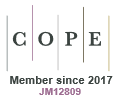Foraging ecology of the agile wallaby (Macropus agilis ) in the wet–dry tropics
Simon C. Stirrat
Wildlife Research
29(4) 347 - 361
Published: 29 November 2002
Abstract
Seasonal changes in diet composition and diet preferences of the agile wallaby (Macropus agilis) were investigated in East Point Reserve, Darwin. The wallabies were almost exclusively grazers in the wet season when the nitrogen content and in vitro digestibility of herbage were high. Evidence suggests that wallabies rarely browsed in the wet season. The diet consisted mainly of non-leguminous forbs, reflecting the abundance of these plants in the study site, but the wallabies showed higher preference for grasses and legumes. In the dry season herbage quality was poor and the wallabies grazed on available green grasses and forbs but also broadened their diet considerably to include a range of alternative foods, including browse, leaf litter, fruits, flowers and roots. A flexible foraging strategy allows agile wallabies to exploit a range of resources in this highly seasonal environment where periods of food shortage may be long and their duration unpredictable.https://doi.org/10.1071/WR01028
© CSIRO 2002


